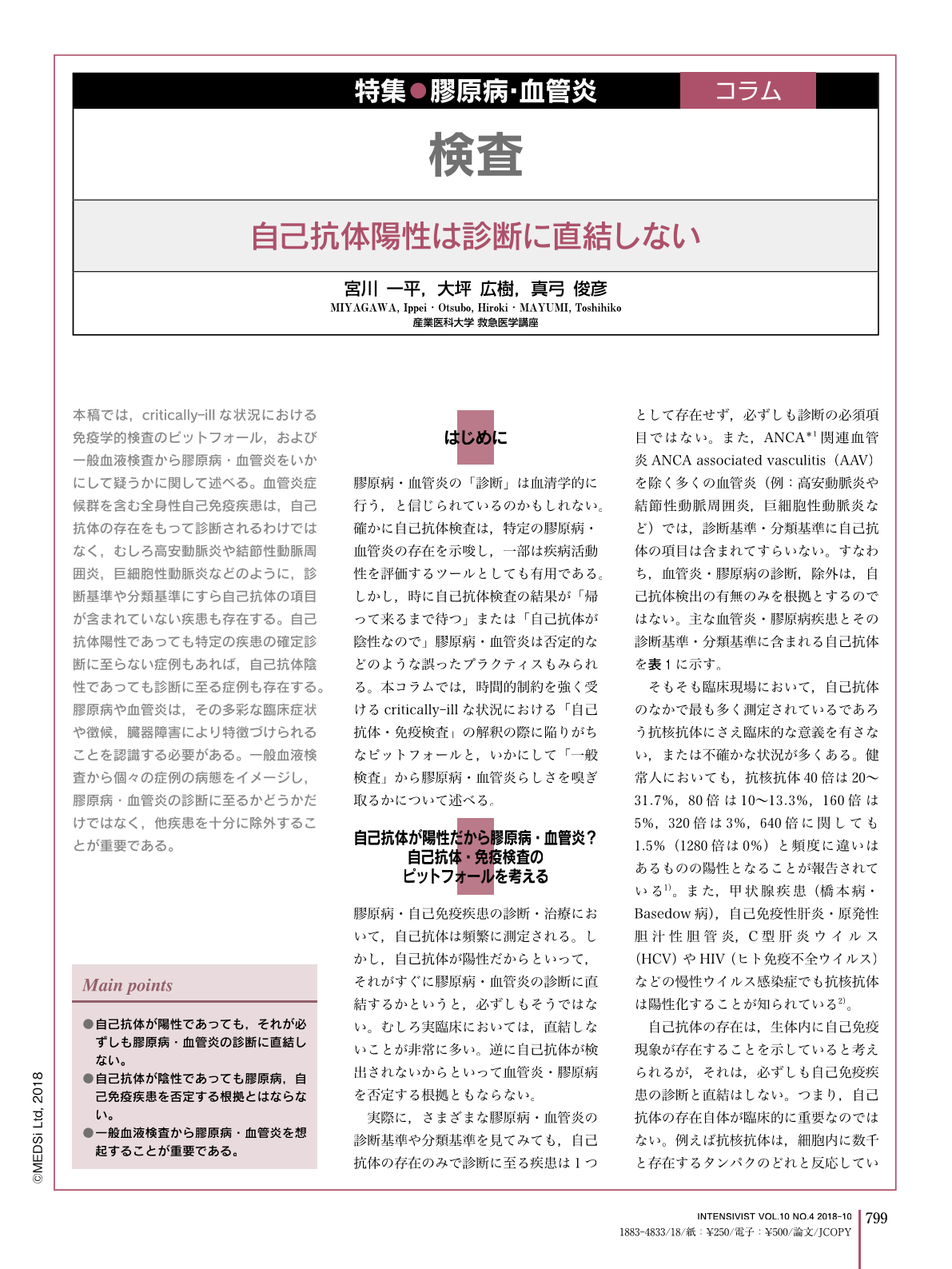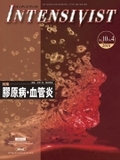Japanese
English
- 有料閲覧
- Abstract 文献概要
- 1ページ目 Look Inside
- 参考文献 Reference
本稿では,critically-illな状況における免疫学的検査のピットフォール,および一般血液検査から膠原病・血管炎をいかにして疑うかに関して述べる。血管炎症候群を含む全身性自己免疫疾患は,自己抗体の存在をもって診断されるわけではなく,むしろ高安動脈炎や結節性動脈周囲炎,巨細胞性動脈炎などのように,診断基準や分類基準にすら自己抗体の項目が含まれていない疾患も存在する。自己抗体陽性であっても特定の疾患の確定診断に至らない症例もあれば,自己抗体陰性であっても診断に至る症例も存在する。膠原病や血管炎は,その多彩な臨床症状や徴候,臓器障害により特徴づけられることを認識する必要がある。一般血液検査から個々の症例の病態をイメージし,膠原病・血管炎の診断に至るかどうかだけではなく,他疾患を十分に除外することが重要である。
Main points
●自己抗体が陽性であっても,それが必ずしも膠原病・血管炎の診断に直結しない。
●自己抗体が陰性であっても膠原病,自己免疫疾患を否定する根拠とはならない。
●一般血液検査から膠原病・血管炎を想起することが重要である。
In this article, we describe the pitfalls of antibody and immunological tests, and diagnostic approaches to critically ill patients with autoimmune diseases and systemic vasculitis. Autoimmune diseases including systemic vasculitis are not always defined based on the presence of autoantibodies alone. The presence of an autoantibody is not a requisite for the diagnosis of Takayasu arteritis, polyangitis nodosa or giant cell arteritis, while substantial numbers of antibody-positive patients are not diagnosed with rheumatic diseases. Rheumatic diseases and systemic vasculitis are characterized by various systemic manifestations and organ damage. Therefore, in individual patients, efforts to address pathological conditions based on regular blood tests and to exclude other conditions are the primary goals to finally reach a definitive diagnosis of rheumatic diseases and systemic vasculitis.

Copyright © 2018, MEDICAL SCIENCES INTERNATIONAL, LTD. All rights reserved.


